"If the world seems devoid of magic, maybe it is, because capitalism keeps us under a neurobiological enchantment that prevents us from sensing the presence and the movement of the numinous. If the gods and the ancestors and the forest seem silent, perhaps it is because our fear has moved us out of our bodies, separating us from the capacity to hear them."
-source unknown
When I open the document that holds the novel I'm writing, I greet many beings. I bow to my biological and chosen ancestors as co-authors, and I honor the book itself as its own unique entity - an emergent incarnation. This book has a body. This book has memories. This book has desires. This book is a coalition of subjects - itself, me, the past, the future, countless individuals, many unseen forces, myriad layers of intricate world-making (ships, monsoon storms, deserts, borders, gardens...). In this heavy “I” culture I’m not sure I’m quite ready to say “we” are writing this book without feeling exceedingly strange, but I’m getting there.
When I co-facilitate meetings for one of the blooming projects under the Widening Circles Collaborative wingspan (which I can't wait to share more about soon), the two co-creators and I lovingly call what we're forming together "4th space". We honor the sentience of 4th space with gratitude for keeping us expanded to insights and intuitions that our three human minds, chiseled and hardened by our own patterns and pains and perspectives, could constrain or resist. 4th space is unconditioned, unbounded, uninhibited. 4th space is an integral part of the team.
Last week I wrote about relational living. This week, I’m exploring sentient living as yet another way to remember that the ordinary is magic, that everything is animate. We have been strategically numbed to believe otherwise. That said, if what I described already feels familiar, it may be because author Elizabeth Gilbert popularized this notion in her book Big Magic, in which she wrote about ideas as “energetic life forms…driven by a single impulse: to be made manifest.” While I acknowledge Gilbert, I credit indigenous cosmology as the deeper source for living this way. To me it feels like ancient-eternal wisdom, like embracing existence as a spiritual experience, like nurturing a sacred relationship with imagination as technology, as tool, as dreamscape, as "psychic sandbox", as one of my teachers says.
When I engage with the world in this way, I feel expanded, interactive, empowered, and immersed in the constant unfolding and enfolding (ty David Bohm) of our universe, so I feel moved to share this today precisely because the signature sentiment infusing this week feels like more collapse, like endless bad news. Understandably, many of us are exhausted, overwhelmed, fatigued because in addition to governance and financial systems that emphatically abandon, invalidate, and defy the will of the people, we all have vast (inter)personal seismologies – eruptions and disruptions – to navigate.
Living this way is an act of resistance. Sentient living restores life itself as sacred, and it remembers and reminds us that we are not here to claim dominion, we are here to be amongst the sentience of everything.
Living this way is a revival of the feminine. Sentient living means mothering creations into arrival, into breath. I feel dignified as a channel to ground in material form what existences are swirling in the ethers, ready to show up here, yearning to land. But it doesn't have to feel so amorphous either. This is practical and applicable to everything we do.
When you stand in the operating room, who else might be holding the scalpel with you? Your grandfather, your mentors, the nurses, invisible forces of healing, the patient's support system, the scalpel itself in all of its precision and sophistication, the technologies that translate signals of either distress or ease to maintain communication, all of this co-creating this surgery together?
When you stand at your computer and construct code to engineer a new product, who else might be conjuring algorithms with you? Your teachers, the archives of iterations you build upon, your colleagues, the cosmos, the "bugs" that glitch the system and seek your presence, the dream you had last night?
When you stand at your kitchen counter to craft a new recipe, who else might be cooking with you? Your great grandmother, the farmers that grew and harvested your ingredients, ancestral recipes, millennia worth of spice trade routes, the sounds of sizzling, the crack of oil, your lover or friend as sous-chef or your pet as cleanup crew?
This way of being reminds me I'm never alone. I am making as much as I am being made. I am creating as much as I am being created. I am a vessel inhabited with and by and through multiple intelligences.
This week, as many of us are, I’m thinking a lot about labor. Labor – from SCOTUS to Amazon, from wombs to warehouses, from clinics to congress – not only in the US but globally – is demanding to be visibilized, to be witnessed, to be dignified, to be sovereign and autonomous in and through our bodies, all bodies. No matter how tarnished the concept, labor is one of the most significant ways the human experience is lived. One of Widening Circles Collaborative’s dreams is to renew our personal and collective relationship with labor in revitalized, reinvigorated ways that support our thrival, to nurture a mutuality economy to free the stranglehold on labor as an exploited commodity and reclaim labor as a regenerative act, as a channeled expression, as a devotion to self, community, and planet, as holy portal for consciousness birthed from our fertile imaginaries.
The concept of utopia was invigorated in my imaginal landscape thanks to dear friend Natasha (hello!) for sharing this beautiful interview with author N. K. Jemisin who calls for:
“…a little bit more willingness to acknowledge that we are a species of several billion individuals and you’re not going to like all of them and not all of them are going to do things that you agree with, but there’s no reason why they can’t all benefit and why we can’t all survive here on this planet and have a decent life. That’s where we need to go.
I suppose it’s a fundamentally utopian way of thinking of things, but why would it be sacrifice? … I think that we have enough resources on this planet for everyone. We have always had more than enough resources for everyone and we’re capable of thinking up ways to come up with more. …What could we achieve if all six billion of us had a decent education and good food in our bellies? How much could we come up with? I think it would be amazing. But we’ve got to get there.”
Utopian, speculative fiction invites us to act, to live, to think as if a more possible, more liberated world is already here, even if it means transporting ourselves to alternate realities through literature to do so.
As a genre, as a concept, utopianism has been marginalized as impractical. I remember that oppressive, domineering forces marginalize not only people but ideas, concepts, ways of being that threaten them most. I return to indigenous ways and ancienteternal wisdoms, to the deeper, pulsing heart that still beats for us, that dreamed for us, that imagined for us long ago. A fertile imaginary is a nonlinear, unbounded, unconstrained imaginary, that not only reaches forward but stretches back. We are not alone at this crossroads moment, this threshold moment. We are memories, we are myths, we are vast intelligences, we are conduits that can ground our freedom into form.
I turn to Laguna Pueblo/Sioux author and scholar Paula Gunn Alan who said:
“If that belief in ancient matriarchal civilization is an irrational concept born of conjecture and wish, let us adjust our perspective to match that of our foresisters. Then, when we search the memories and lore of tribal peoples, we might be able to see what eons and all kinds of institutions have conspired to hide from our eyes… The evidence is all around us. It remains for us to discover what it means.”
Our fertile imagination is one of our most important tools. It is here we can invite in radical alternative presentfutures, become dreamscapes for the new paradigm, engage as living cosmologies and mythweavers with a constellation of creators to serve collective flourishing.
As always, would love to hear how your heart is, and if anything here sparks you, intrigues you, challenges you… here to hear it all.
With care,
Rachel
Thank you so much for your generous presence here. If you value what you find here and would like to support my work, consider leaving a heart and/or comment.
Or help widen the circle, by sharing with a loved one.
Thank you to all my paid subscribers. If you’re not a subscriber yet, I would love to have you officially on the list! If it moves you, please consider contributing a monthly or annual membership. 10% of all contributions go to Sogorea Te’ Land Trust. I’ll share the total donation amount on the Winter Solstice 2022.






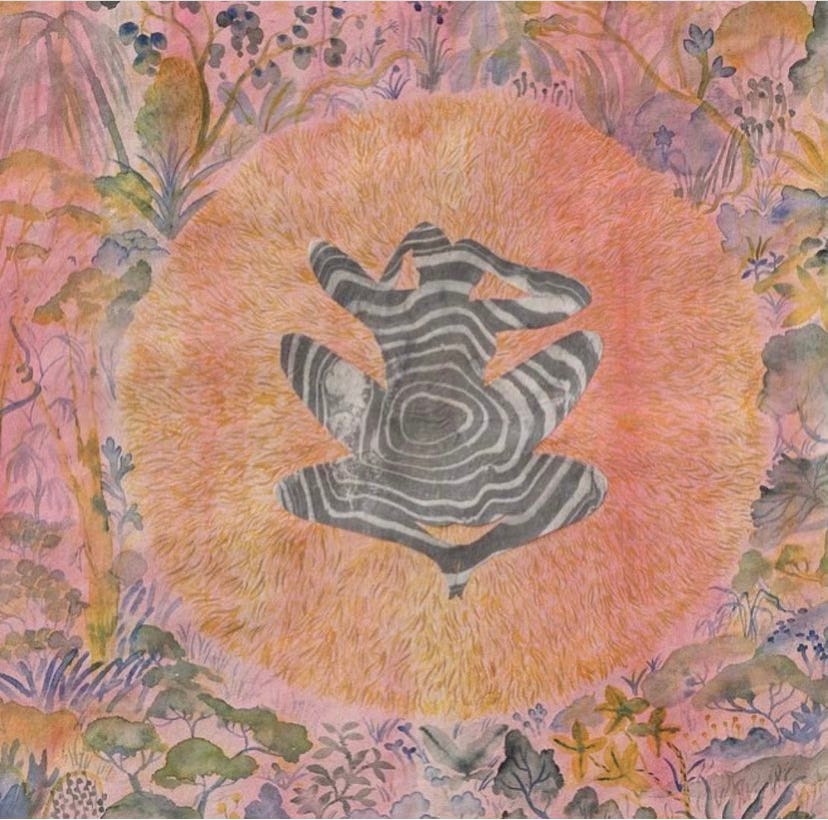
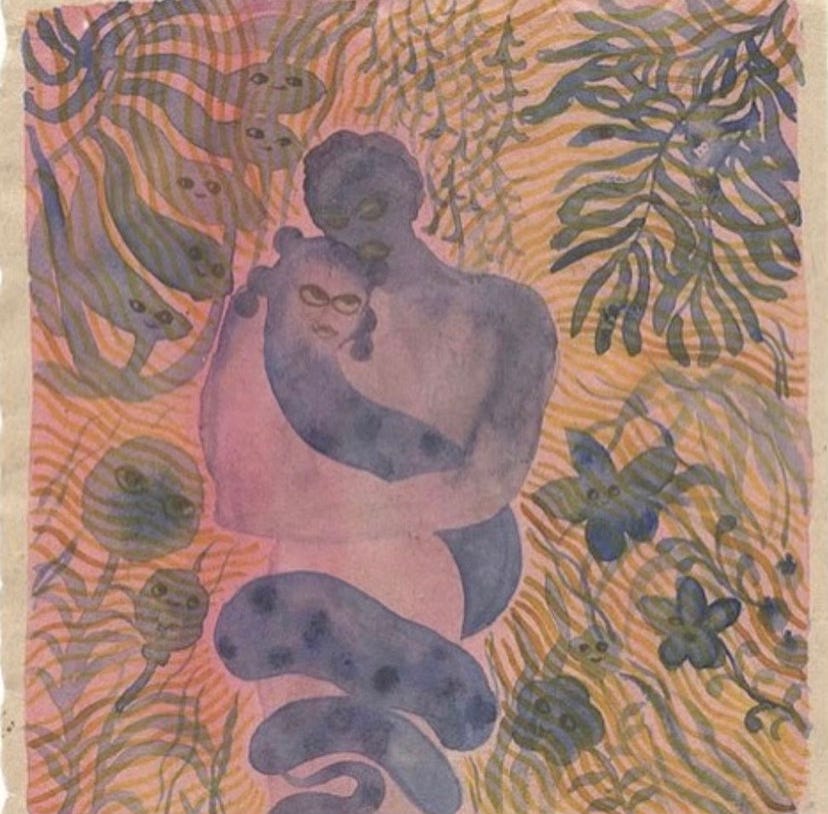
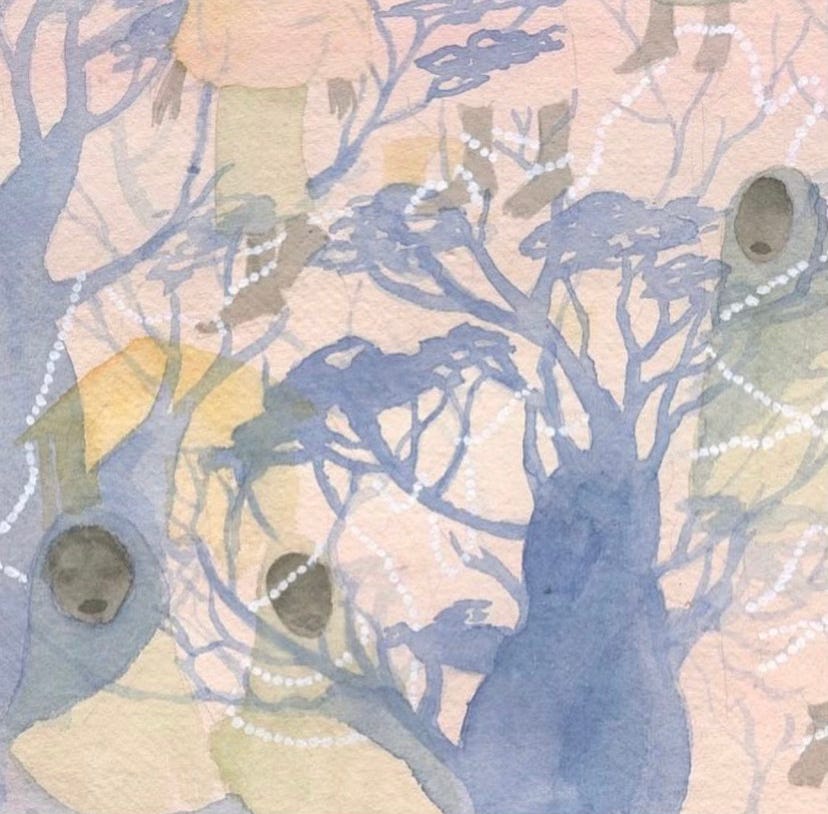





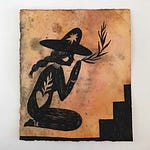



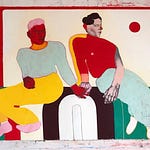
Share this post